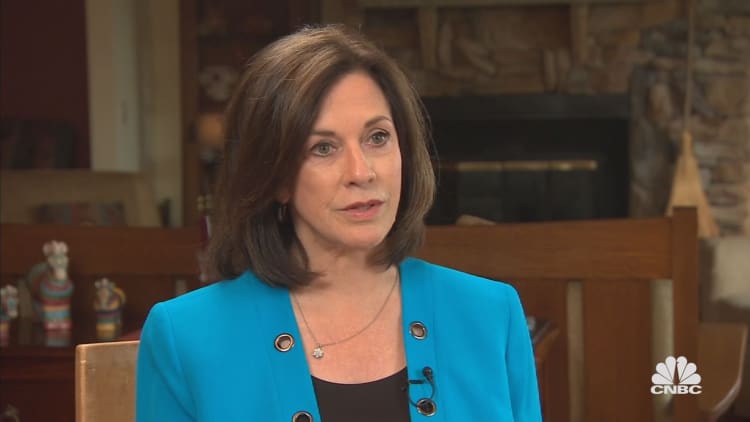If you were to die tomorrow, would your loved ones be taken care of? It is not a pleasant thing to think about, but it is an essential part of your overall financial plan.
Consider the story of Stanley Smith, a multimillionaire who made his fortune selling iron ore to the Japanese after World War II.
Before his death in 1968, he made careful arrangements surrounding his wealth. Three-quarters of his estate would go into a charitable foundation benefiting homeless people, veterans and people with disabilities. The remaining $100 million would go into a trust to ensure the well-being of his wife, May Wong Smith. A team of three trustees would manage the trust.
But in a story told on the next episode of CNBC's "American Greed," one of those trustees, Mark Avery, went rogue. He skimmed more than half of May Wong Smith's trust fund, ostensibly to invest in a security business. But through that business, Avery created his own small army, navy and air force, including a heavily armed security force, a patrol boat, helicopters and vintage U.S. and Soviet fighter planes.
Authorities concluded that rather than investing in a business for the benefit of the trust, Avery was simply building an outlandish collection of "toys" for himself.
"How often do you see somebody spending $53 million in six months?" asked Bryan Schroder, an assistant U.S. attorney in Alaska, where Avery was convicted of 11 felony counts, including fraud and money laundering. Avery, who is serving a 13-year sentence, is appealing his conviction from prison.
While most of us will never have to worry about a $450 million fortune, the story of Stanley Smith, May Wong Smith and Mark Avery carries some important lessons regardless of your net worth.
A matter of trust
Estate planners frequently advise clients to move assets into a separate entity such as a trust. It is an arrangement not unlike the one Smith set up, albeit on a much smaller scale.
While trusts come in many forms, the main objective is to shelter your assets — including money, investments and your home — from taxes and the courts, especially the long and often costly process known as probate that is generally required to carry out a will. In a trust, the money automatically passes to your beneficiaries — based on your specific directions — after you die.
The other common thread among trusts is that they are run by a third party known as a trustee. Choosing that individual or individuals is one of the most important decisions you will make.
"I'm sad to say that there are predators out there," said author and investigative journalist Diane Dimond. Dimond is working on her fourth book, "The Final Racket," which she describes as "an expose and a self-help guide" for families dealing with aging parents.
Dimond cautions that trusts "are never ironclad," and can be filled with loopholes. That is why, when it comes to a trustee or the executor of your will, you need to appoint someone you completely trust.
"I would never appoint an attorney as your executor, unless of course you're married to them or they're part of the family and you truly do trust them," she said. "Get someone else besides an attorney. They know the loopholes. They know the laws."

Another way to seamlessly transfer wealth is to designate loved ones such as adult children as co-owners on investment accounts. Through an arrangement known as a transfer on death agreement, ownership will automatically transfer to your loved one when you die.
And be sure to plan for the unexpected. There are no guarantees that your executor, power of attorney or trustee will outlive you, so be sure to appoint successors.
Seeing is believing
Putting your wishes in writing through instruments such as a last will and testament, a trust or a power of attorney is critical.
"Don't die without some sort of protection. A power of attorney. A last will and testament. A final health directive. Do you want to be resuscitated or not?" she said.
But Dimond suggests an additional safeguard. Get it on video.
"I have a case where a family videotaped their wishes into the camera, and at the end said — into the camera — 'If any of you children try to get around our desires and contest this, you're out of the will.' Now that's videotaped proof of what the parent wanted when they were of sound mind and body. And judges can't really ignore that," Dimond said.
The video is no substitute for properly executed legal documents, but Dimond said it essentially seals the deal because seeing truly is believing.
"I would suggest every family sit down. Whatever your last will and testament is, read it into the videotape and express what you want done, and where you want the money to go and who your power of attorney is and who the successor is," she said.
No time like the present
You say you are healthy. You don't have that much money yet. Death is a long way off. All of this unpleasant stuff can wait. Wrong. Now is the perfect time to plan for the inevitable.
"Figure it out. Sit down at the dining room table, open a bottle of whatever you want and start to talk about it," Dimond said.
That's because the consequences of not planning can be devastating to the people you care about the most.
In extreme cases, when incapacitated parents have failed to plan and the family cannot reach an agreement, Dimond says courts have been known to appoint guardians to make the crucial decisions. And while many guardians are principled and have their charge's best interests at heart, Dimond says there is a "cottage industry" of guardians ready and willing to treat your family's wealth as their own.
"One of the most insidious things I found — there are actually trolls at hospitals that wait for old people to come in on stretchers," she said. "And if they're all by themselves they'll approach the elderly person and say, 'Where's your family, dear? Oh, you don't have any family. Why don't you just sign this? I'll help you out.' Boom. They're suddenly in guardianship."
Are you convinced? Ready to make a plan? The National Association of Estate Planners and Councils offers a handy online directory of accredited professionals in your area. Accreditation is awarded to individuals "who meet special requirements of education, experience, knowledge, professional reputation, and character," the organization says.
In addition, the National Academy of Elder Law Attorneys offers a directory of attorneys who specialize in an area of the law that will only expand as the senior population grows, and as scam artists like Avery continue to troll for victims.
See how the feds brought down Mark Avery's personal air force and ended his dastardly scam on the all new "American Greed," Monday, Sept. 4 at 10 p.m. ET/PT on CNBC.




